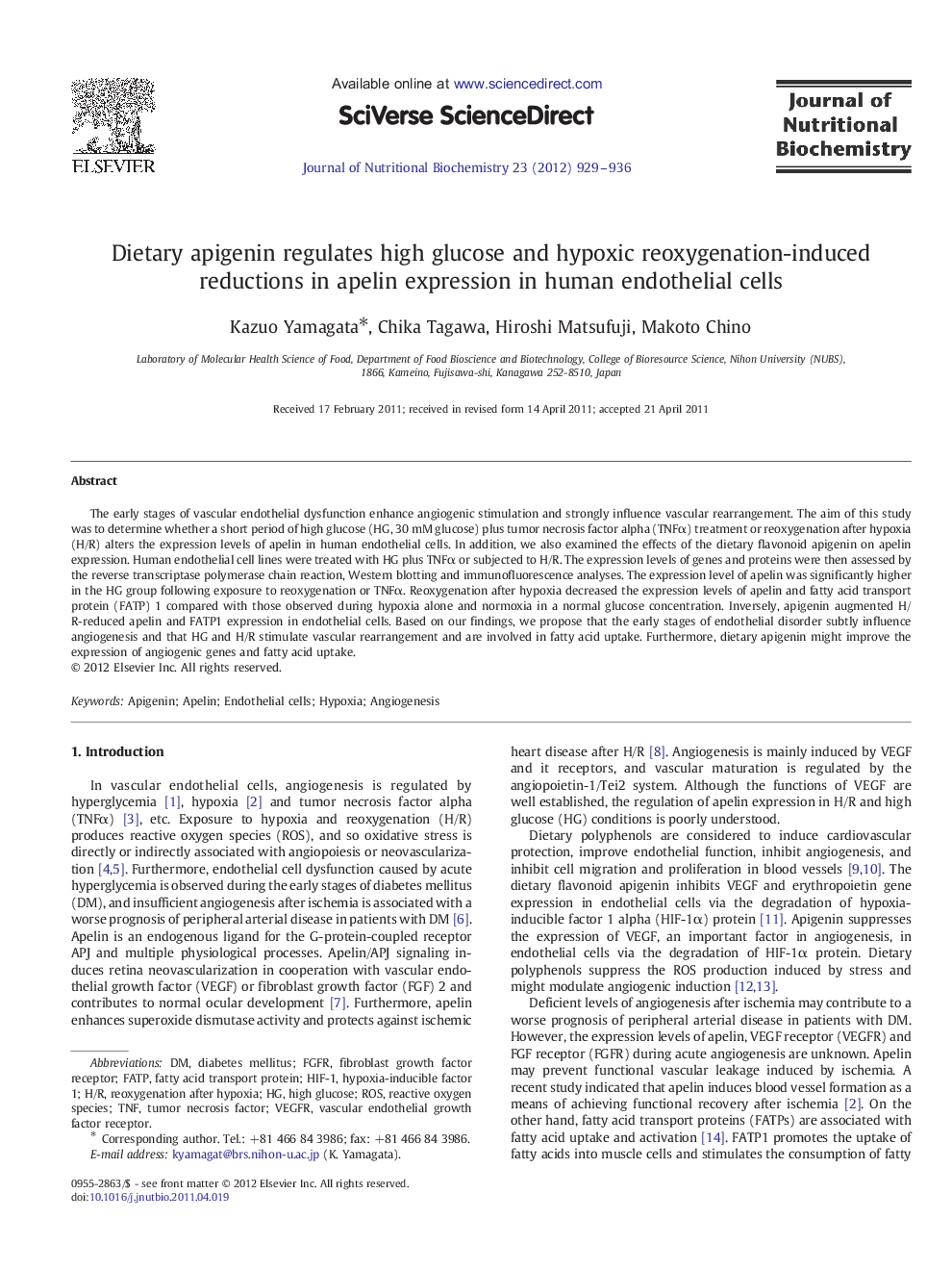| Article ID | Journal | Published Year | Pages | File Type |
|---|---|---|---|---|
| 1989834 | The Journal of Nutritional Biochemistry | 2012 | 8 Pages |
The early stages of vascular endothelial dysfunction enhance angiogenic stimulation and strongly influence vascular rearrangement. The aim of this study was to determine whether a short period of high glucose (HG, 30 mM glucose) plus tumor necrosis factor alpha (TNFα) treatment or reoxygenation after hypoxia (H/R) alters the expression levels of apelin in human endothelial cells. In addition, we also examined the effects of the dietary flavonoid apigenin on apelin expression. Human endothelial cell lines were treated with HG plus TNFα or subjected to H/R. The expression levels of genes and proteins were then assessed by the reverse transcriptase polymerase chain reaction, Western blotting and immunofluorescence analyses. The expression level of apelin was significantly higher in the HG group following exposure to reoxygenation or TNFα. Reoxygenation after hypoxia decreased the expression levels of apelin and fatty acid transport protein (FATP) 1 compared with those observed during hypoxia alone and normoxia in a normal glucose concentration. Inversely, apigenin augmented H/R-reduced apelin and FATP1 expression in endothelial cells. Based on our findings, we propose that the early stages of endothelial disorder subtly influence angiogenesis and that HG and H/R stimulate vascular rearrangement and are involved in fatty acid uptake. Furthermore, dietary apigenin might improve the expression of angiogenic genes and fatty acid uptake.
